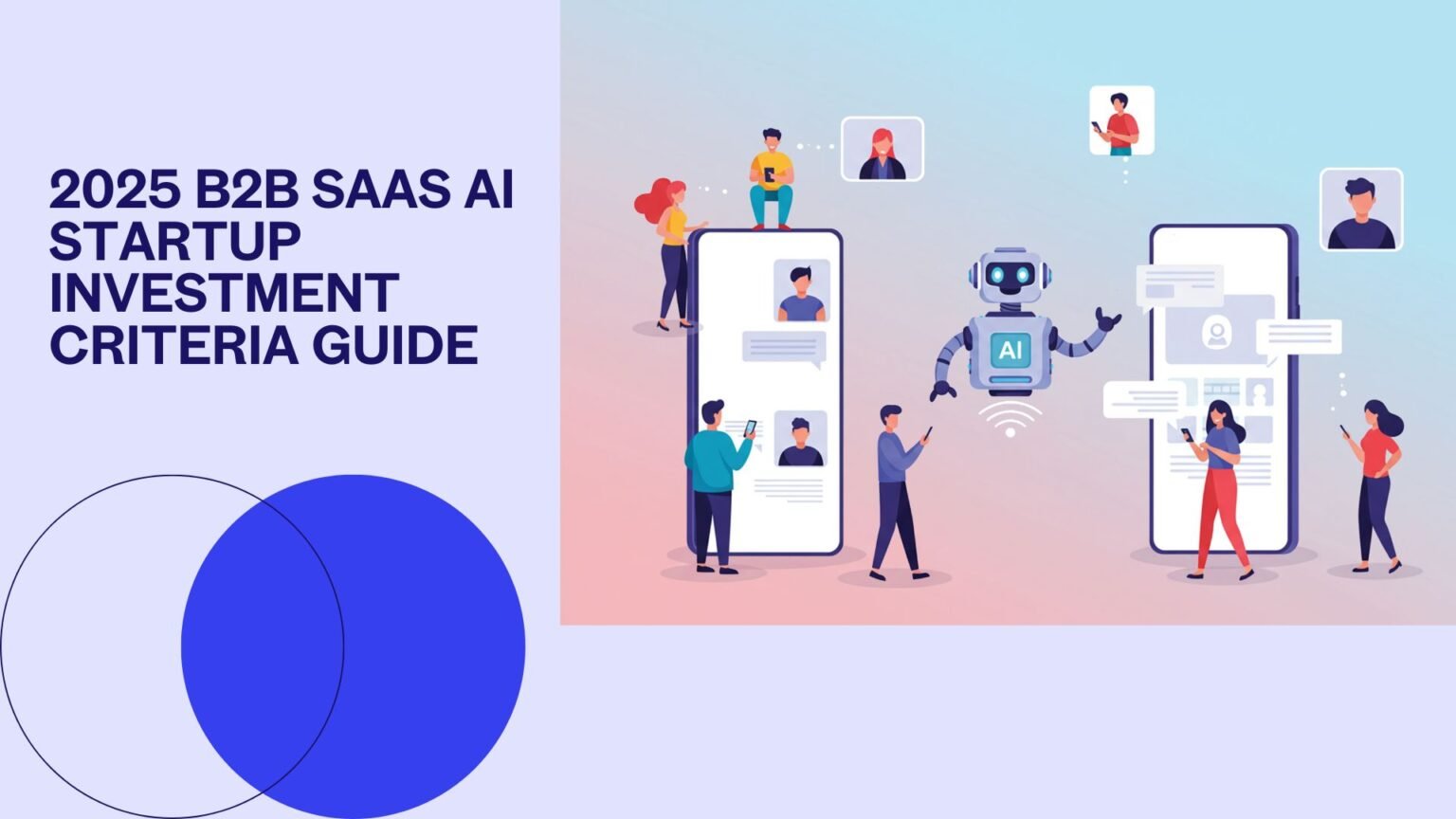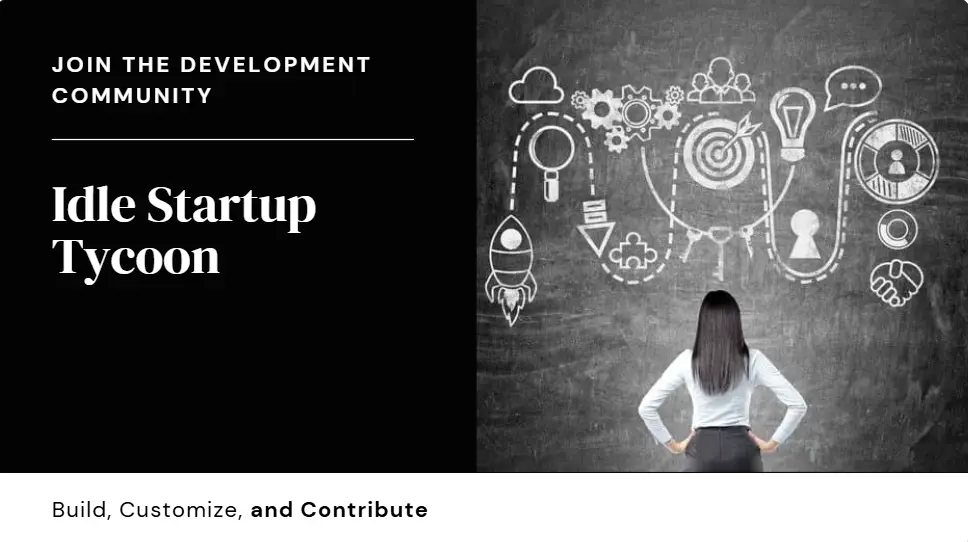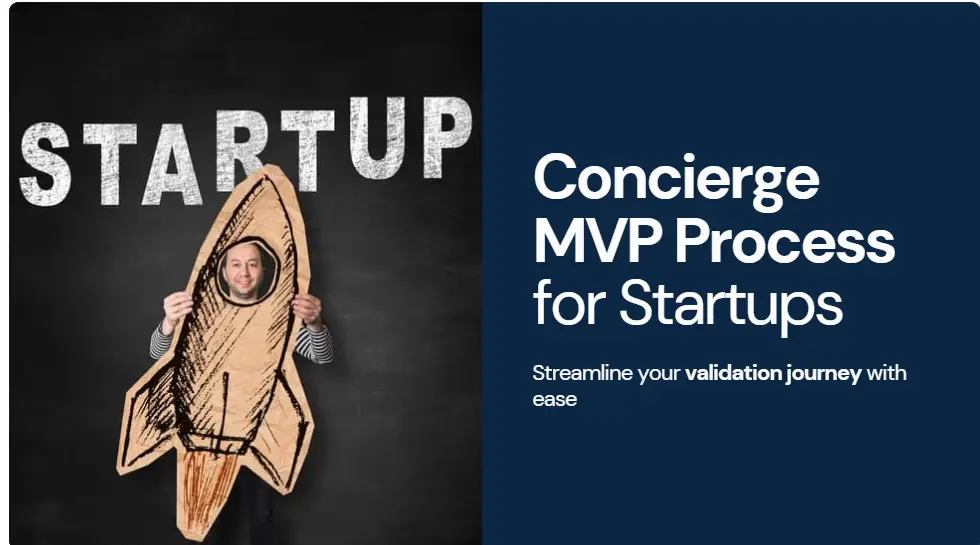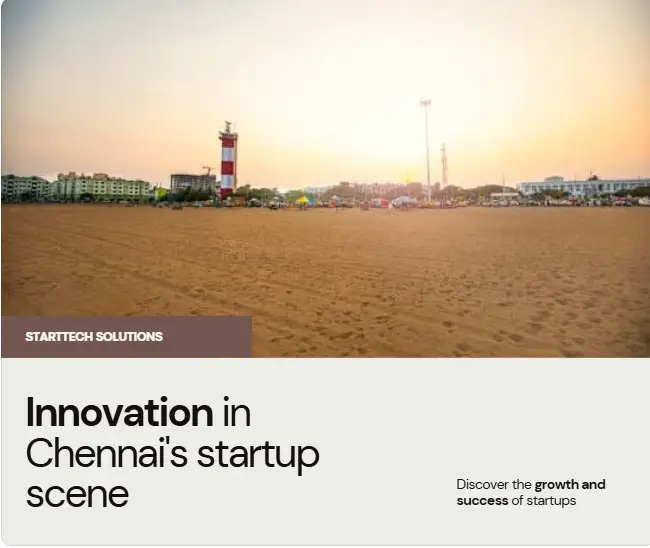Increase in AI investments
For Q1 2025, AI startups accounted for 58% of worldwide VC investment, or about $42.3 billion out of the total of $73 billion.
Market Zenith
The global SaaS market is projected to top $300 billion by year-end, growing at over 20% annually.
Convergence of Technology
The seamless infusion of AI in day-to-day life has shifted from pilot experiments with add-ons to mass-market products.
The Investor's Dilemma: Opportunity or Overhype
Opportunity
AI's capacity to automate complex processes—from predictive analysis to coding—brings a disproportionate Return on Investment (ROI).
Overhype
Startups often overhype "AI" with no proprietary data, unique differentiation, or viable go-to-market strategies.
Your Advantage
Knowing real B2B SaaS AI startup investment criteria enables you to distinguish enduring value from marketing hype.
Experience with B2B SaaS and AI Space
What is a B2B SaaS AI Startup?
- Cloud-native distribution of subscription software.
- Embedded AI features: from automation to generative uses.
- Business orientation: marketing to groups, rather than individual consumers.
Key Trends Influencing AI for B2B SaaS in 2025
Human-AI Collaboration
AIs are becoming colleagues, handling routine jobs so that humans can concentrate on high-level strategy.
Vertical Specialization
AI engines are being optimized for particular domains like legal-tech and health-tech, increasing their effectiveness.
Data Network Effects
Platforms with large, private data sets create significant competitive moats and obstacles for new entrants.
AI SaaS Core Investment Philosophy
Shifting from Expansion to Sustainable Measures
Investors are moving from vanity to value, prioritizing metrics like net dollar retention, unit economics, and a clear path to profitability over headline Annual Recurring Revenue (ARR) growth.
Why Product-Market Fit Still Trumps Hype
Proof over promise is critical. With 70% of AI pilot projects getting stuck in development, deep market validation is not an option, but a necessity.
Foundational Startup Metrics to Evaluate
| Metric | Benchmark | Why It Matters |
|---|---|---|
| MRR & YoY Growth | 3–5% monthly; 40–60% YoY | Indicates a healthy, scalable revenue runway. |
| Customer Churn | < 5% annual | Low churn signals strong product satisfaction and value. |
| LTV:CAC Ratio | ≥ 3:1 | Ensures long-term profitability and sustainable growth. |
| Gross Margin | 80–90% | High margins are vital for managing cash burn and funding R&D. |
| Burn Multiple | ≤ 1.5 | Measures the efficiency of capital deployment. |
Key Metric Benchmarks
Visual comparison of crucial health metrics for a B2B SaaS AI startup.
AI-Specific Evaluation Criteria
Own Your Data
Proprietary data sources (e.g., customer logs, industry-specific data sets) improve model defensibility and create a competitive moat.
Model Performance & Explainability
Accuracy metrics (F1, ROC-AUC) with clear reasoning for outputs build essential enterprise trust.
Engineering Team Strength
Seek out senior ML engineers, data scientists, and MLOps professionals, especially those with open-source project experience.
Market and Competition Analysis
Total Available Market (TAM)
Look for large, well-defined markets. For example, contract review AI software aims at an $8 billion legal market.
Barriers to Entry
Key differentiators include proprietary data, model training IP, regulatory approvals, and strategic channel partnerships.
Leadership and GTM Strategies
Founding Team Evaluation
Domain experts often outperform generalists due to insider insight into buyer pain points. Look for a track record of success: past exits, achieved targets, and support by distinguished advisors.
Revenue Models
Freemium & Usage-Based: Freemium powers low-touch adoption; usage-based models scale with customer success.
Channel Partnerships: Integrations with ERP/CRM giants can draw large enterprise contracts.
Product-Led Growth: Self-serve trials and in-product onboarding decrease Customer Acquisition Cost (CAC).
AI Ethics, Security & Compliance
Data Privacy & Governance is non-negotiable. Guarantee GDPR & CCPA compliance with strong data-lineage tracking. Trust-building certifications like SOC 2 Type II and ISO 27001 are table stakes for enterprise buyers.
AI Startup Valuation Framework 2025
Valuation Multiples
Key Valuation Factors
- Revenue Multiples: 8–12× ARR in cooling markets; a premium of 15–20× for high-growth, defensible AI SaaS.
- Cash-Flow Discounting: Must adjust for high model-training costs and compute burn.
Red Flags to Watch For
- Over-dependence on third-party foundation models.
- Loss of data ownership to partners or platforms.
- Unscalable or overly expensive infrastructure.
Conclusion & Your Next Actions
2025 presents exceptional prospects in the B2B SaaS AI arena, especially for those who master the strict funding requirements. By using this guidance, you can position your portfolio for long-term returns, benchmark deals against reality, and ask the right questions.
Your Next Course of Action:
- Examine businesses using the aforementioned metrics.
- Speak with founders who have extensive domain knowledge.
- Take decisive, yet prudent, action on carefully vetted opportunities.
Let's make more intelligent investments in the AI-powered B2B SaaS of the future!






